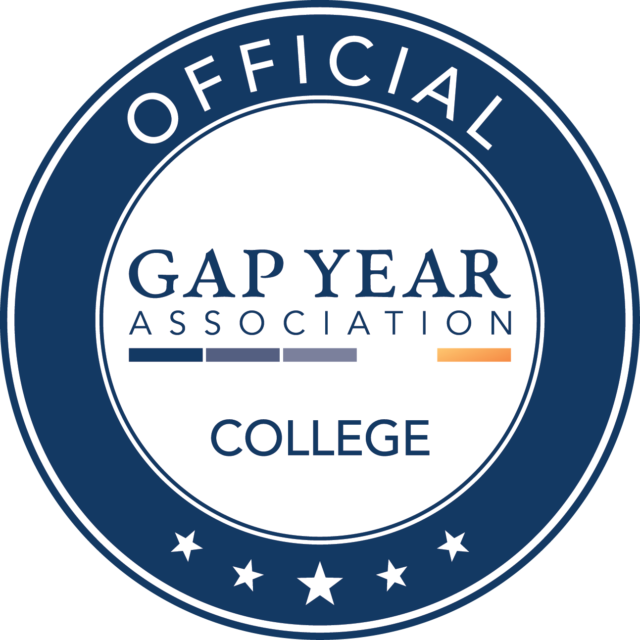
Warren Wilson College 2018 graduate Leah Havlicek studied abroad in Peru. Warren Wilson College in Asheville, NC, was named the first Official Gap Year College by the Gap Year Association. One of the draws for gap year students is the college’s commitment to experiential learning and study abroad. Photo courtesy Leah Havlicek.
Telling college-bound students that it’s okay to wait to go to college seems counterintuitive. But Warren Wilson College not only embraces the practice, they offer gap year students specialized support and aid. That’s why Warren Wilson College has been named the very first “Official Gap Year College” by the Gap Year Association.
The Gap Year Association defines a gap year not as a year off, but as a year “on,” an experiential year “typically taken between high school and college in order to deepen practical, professional and personal awareness.”
“We are so pleased to be the very first institution to become an Official Gap Year Association College. Warren Wilson’s distinctive emphasis on integrated applied learning—in academics, service, work, career preparation, and study abroad—make this a great learning environment for gap year students, who have already been ‘out in the world’ before coming to college. We even have a residence hall option for gap year students! It’s just a great fit for Warren Wilson to be a part of the Gap Year Association, and we’re excited about our collaboration,” said Dr. Lynn M. Morton, President of Warren Wilson College.

Gap Year Association Official College
“If a gap year is to go out, explore the world, and understand yourself and your place in the world better, then college is the next step to really cement the better attributes of society and self, especially for those who took a gap year. Warren Wilson is a great place for students to land.” Ethan Knight said. Knight is the executive director of the Gap Year Association.
Between five and ten percent of Warren Wilson’s incoming class each year are students returning from a gap year. The national average is less than one percent. Brian Liechti, Director of Admissions at Warren Wilson, knows there are reasons that gap year students are choosing Warren Wilson College in much higher numbers.
“The values that lead students to take gap years in the first place—intellectual curiosity, desire to grow, dedication to community engagement, hunger for a lived experience and yearning to lead meaningful lives—these are values that Warren Wilson College shares and nurtures,” Liechti said. “It is important for students’ values to align with their college’s mission.”
Though the practice is gaining in popularity, many misconceptions remain. Parents worry that students will lose academic skills with a year away from study and will perform poorly in college or fail to enroll in a college at all as a result.
Education experts maintain that the opposite is true. Studies have shown that a full 90 percent of gap year students do enroll in college within one year of their gap year, and gap year students consistently have better college GPAs than the national average and higher graduation rates. After college, 86 percent of employed gap year students say that they are satisfied or very satisfied with their current job, well above the national average that hovers around 50 percent.
Knight said that he is very pleased that Warren Wilson College is the first Official Gap Year College. “I want students to know about Warren Wilson. I want them to understand that the community and sense of fulfillment that they found doesn’t have to stop at the gap year. I think there’s oftentimes the sense at the end of a gap year of, ‘Okay, back to life as normal, right?’ But that’s just so much energy down the drain. We want them to know that this can be life forever—this sense of community and fulfillment. The sense of purpose when you live a life that is worth living, it’s amazing how much more energy you have to give it.”
In addition to being a good fit for gap year students philosophically with experiential and applied learning, Warren Wilson College supports their needs specifically. The College’s initiatives include leadership scholarships for students who have excelled in gap year experiences, varied international and domestic study away programs and internships, themed housing for gap year students, and a general education program anchored in a commitment to civic identity and community engagement. The deferral policy allows students to secure their admission and set their financial aid package a year ahead of enrollment, with counselor contact throughout the gap year to help these students keep on track for college.
“Nationally, there’s lots of conversation that colleges are dying, that colleges aren’t prepared to meet the needs of the future student work force,” Knight said. “This feels like a very significant way to say, ‘That’s not true for all colleges.’”